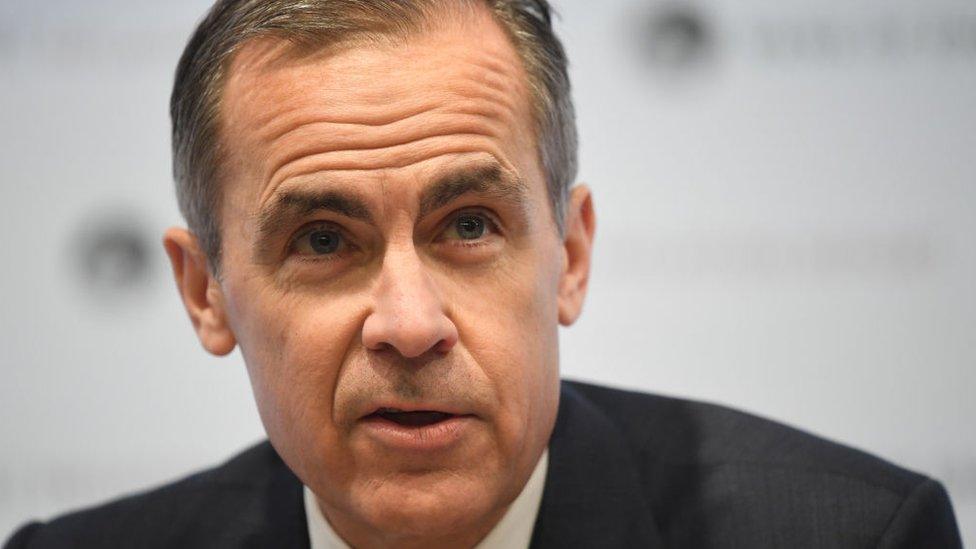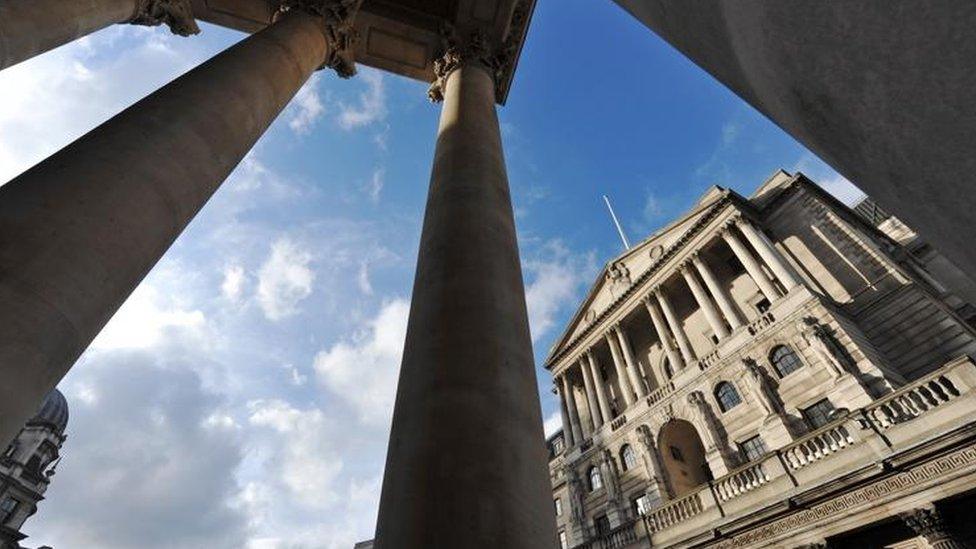Is Carney an unreliable boyfriend - or just sensitive?
- Published
- comments

It all seemed a lot clearer in February. At the publication of its economic health check three months ago, the Bank gave a clear signal that interest rates would rise rather more quickly than expected.
Global growth was strong and the UK economy was caught in its positive tailwind.
Real incomes were starting to rise and inflation was still stubbornly above the 2% target.
Commentators started talking confidently of a rate rise this month and another one in the autumn.
The markets were so bullish they priced in a 90% probability of a hike before today was out. All such talk has withered.
Interest rates will remain at 0.5%.
'Bounce back'
Today the Bank struck a much more doveish note on the future path of interest rate rises - a doveish note first revealed by Mark Carney, the Governor, in his BBC interview last month.
The judgement has to be now that the next interest rate increase - unless there is a strong bounce back in the economy or inflation starts rising substantially again - will be far later this year.
The why is clear.
The economy took a major pounding in the first three months of 2018, with growth falling to 0.1% - well below the Bank's own February forecast of 0.4%.
Although the Bank says that growth for the rest of the year will be stronger, that first quarter figure has led to a significant downgrade in the overall economic forecast for 2018.
Some of that is down to the poor weather, with the Bank being more aggressive about the negative effects of the Beast from the East ("a significant driver of reduced activity") than the Office for National Statistics.
Then there are the "exceptional circumstances" of Brexit - which the Bank says it has to keep constantly in mind.
Global growth has also eased slightly and there is some evidence of declining consumer confidence alongside a softer housing market.
All in all, the Bank has become more cautious about the performance of the economy.
Consumer confidence
Yes, employment levels remain strong.
Incomes are rising slightly faster than inflation.
And the Bank does expect growth to bounce back over the rest of the year - alongside inflation falling more rapidly than expected over the next two years.
But there are just too many erratics for the Monetary Policy Committee to feel confident that now is the time to raise rates.
How will the increase in oil prices following America's decision to pull out of the Iranian nuclear agreement affect inflation?
Will that miserable Q1 growth figure be revised upwards, as Q1 figures have been in the past, particularly those affected by the weather?
Will consumer confidence return?
Will there be a major Brexit break-through?
The critics might gather.
'Wait and see'
Is Mr Carney revealing once again his "unreliable boyfriend" tendencies, promising that interest rate rises are just around the corner, only to pull back?
He might suggest that he and the other eight members of the MPC are less the unreliable partners, more the "sensitive" listeners.
Sensitive to changes in the data which effect a decision based on fine margins and delicate judgements.
It was John Maynard Keynes who said that when the facts changed, so, sir, did he.
Today the Bank has changed tone.
Let's wait and see, it is saying.
Let's wait and see how the economy develops until we give any firm guidance on the path of interest rates beyond the Bank's often used formulation of some limited rises "over the forecast period" of the next three years.
Yes, they will rise at some point.
But the chances of that happening sooner rather than later has receded.
- Published10 May 2018

- Published19 April 2018